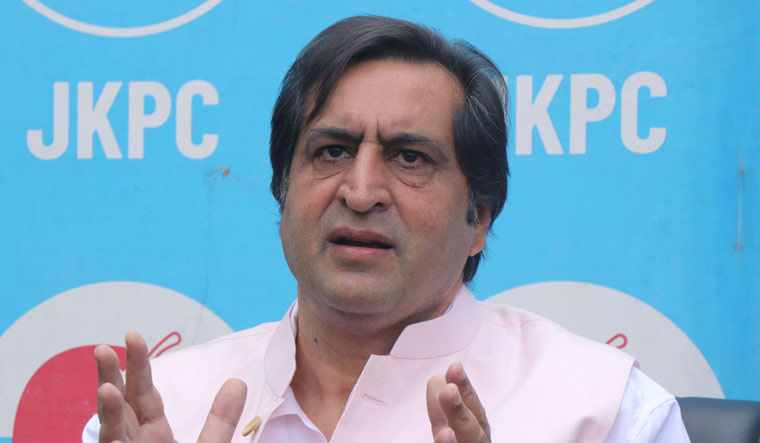Peoples Conference President and MLA Handwara, Sajad Gani Lone, has called for a “scientific and statistical analysis of reservations,” asserting that the current policy framework is inflicting disproportionate damage on the Kashmiri-speaking ethnic group.
In a detailed statement, Lone revealed that he has filed an application under the Right to Information (RTI) Act to obtain relevant data that would form the foundation of a “statistically scientific basis” to evaluate the impact of reservations.
“I have filed an application under the RTI to get some data. That would provide a statistically scientific basis to evaluate the damage inflicted upon the Kashmiri-speaking ethnic group due to reservations,” he said.
Explaining the method of analysis he intends to undertake, Lone said, “We need data on actual merit in an examination held for recruitment. We need data on the last ten recruitment examinations. Which means that we produce actual marks scored by the candidates and prepare a merit list without applying reservations. Next, we get the actual selection list. The difference between a merit list without applying reservations and a merit list after applying reservations gives us the exact damage inflicted upon the Kashmiri-speaking ethnic group.”
According to PC President, the selection data from ten examinations would serve as a sample, which can later be expanded to derive a statistically significant figure in assessing the extent of what he called “damage.”
“If the government does actually come up with anything, we will apply that new reservation system to the last ten recruitment lists released by the government and see whether it changes anything or makes matters worse for the Kashmiri-speaking ethnic group,” he further stated.
Describing the approach as evidence-based and rational, Lone said, “Now this is a scientific procedure. Let us end all debates and decide things purely on a scientific basis. And apply remedy on a scientific basis.”
In a pointed remark, he cautioned against allowing electoral calculations to override the interests of youth. “Let us separate votes from the future of our youngsters. Let dreams not be massacred at the altar of votes,” Lone concluded.







